Note that there are various types of automation software, such as:-
- Robotic process automation
- Automation of business process
- And automation of workflow
The remarkable thing about this software is it has significantly impacted how work is conducted. Generally, they leverage cutting-edge technologies like: Artificial Intelligence(AI), Machine Learning(ML), and Natural Language Processing(NLP) to automate mundane tasks, along with optimizing efficiency.
What’s worth mentioning is it also includes intelligent systems that enable the following things:-
- Process discovery
- Mining of task
- Mining of process
For variations, we will use these three words interchangeably, ‘Automation,’ and ‘Mechanization.’
Introduction to automation software
One thing to be noted: “Automation software is a state-of-the-art technology that leverages tools like robotic process automation, ML, etc. to streamline and mechanize routine, labor-intensive tasks. It deserves to be highlighted that these tools are based on concepts of AI. Astonishingly, these tools can greatly enhance business process management!
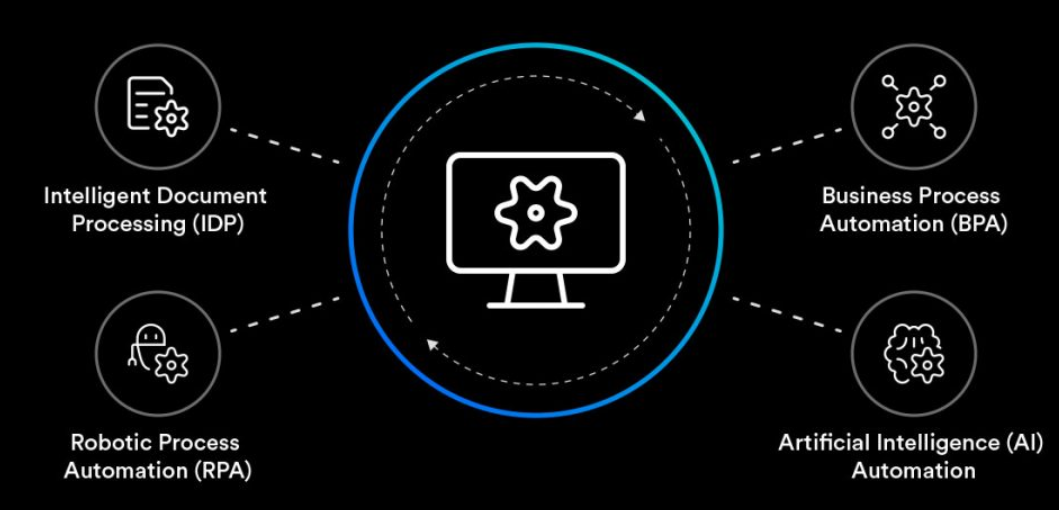
Importantly, NLP is another significant feature, facilitating interaction between humans and computers.
Defining automation software
What’s worth noticing is this software constitutes:-
- Intelligent automation
- Mechanization of workflow
- Mechanization of process
It is imperative to note that these features enable systems to accomplish tasks with minimal human intervention.
Usually, it claims to be engineered with advanced technologies like ‘Machine learning’ and ‘Natural language processing’ to manage regular activities with efficiency.
It is relevant to mention that a variety of mechanization software tools are said to aid in automated workflows along with the automation of data. It’s just fascinating how these tools not only create a cohesive business process management system but also enhance operational efficiency!
Key features of automation software
It's worth noting that key features of this software regularly include:-
- Intelligent mechanization
- Robotic process automation
What’s obvious is these features aid in the analysis and execution of complex business processes. These technologies work together to ensure enhanced:-
- Accuracy
- Speed
- Consistency
- Productivity
Furthermore, mining of tasks and data mechanization are commonly used within such software for automating the data handling process.
Key features of best project management Bonsai
Bonsai's project management workflow is designed to enhance agency productivity and project success. Key features include detailed project planning, which lays out tasks and deliverables, ensuring visibility and clarity for all stakeholders. Task management is streamlined with workflow automation, allowing for efficient execution and monitoring of tasks against project deliverables.
The platform also offers value stream mapping for continuous improvement and resource management tools for time tracking and workload balancing. Workflow automation is another standout feature, promoting process improvement and efficiency. Bonsai's workflow diagram visualizes the project phases, optimizing the journey from planning to completion.
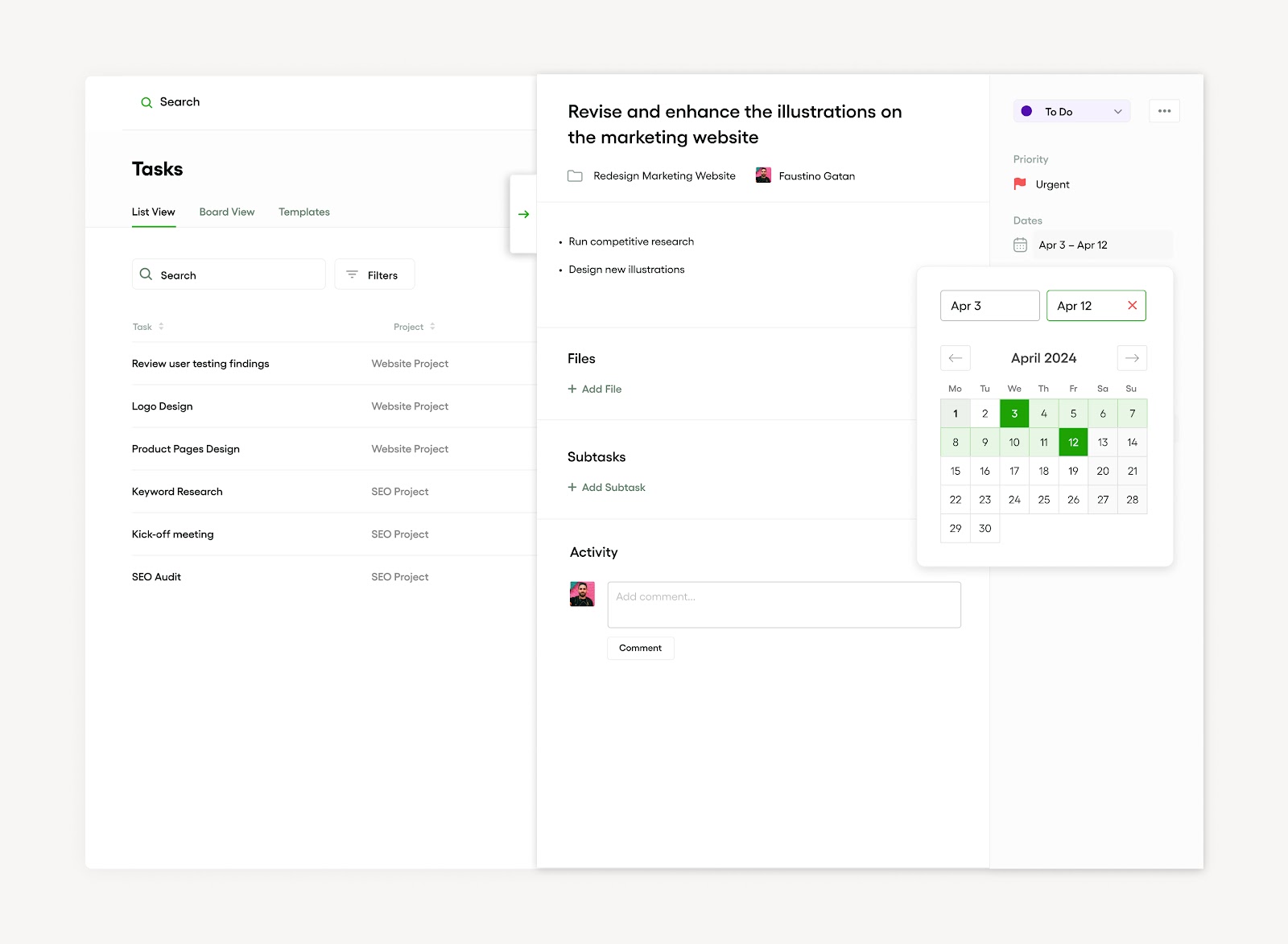
Additionally, Bonsai provides a powerful CRM, time tracking, scheduling, and tools for creating proposals, contracts, and invoices, all within a user-friendly and integrated environment. This holistic solution ensures that agencies can manage projects, assign tasks, and handle billing effortlessly, contributing to a seamless business process from the initial proposal to the final invoice.
Types of automation software
Interestingly, mechanization software can be divided into several types, including:-
- Robotic Process Automation (RPA)
- Workflow mechanization
- Intelligent automation
The cool thing about this RPA is it employs bots to execute repetitive tasks that free up human time. What’s fascinating is that automation combines RPA with machine learning along with artificial intelligence capabilities to automate not just tasks; but entire processes!
One thing is for certain: Workflow automation is associated with ‘Business Process Automation(BPA)’ which focuses on automating workflows to enhance the overall ‘Business Process Management(BPM).’
Business process automation software
It is widely recognized that BPA software leverages technologies so that it can streamline business tasks and processes. The best thing is that by eliminating manual, time-consuming tasks; it enhances productivity and reduces human error.
Plus, key features of BPA include the following:-
- Process discovery
- Process mining
The noticeable thing about these tools is they assist in identifying inefficiencies within a company. With added capabilities like NLP and task mining, undoubtedly, this software truly brings intelligent mechanization to the workplace.
IT process automation software
It's no secret that IT Process Automation Software uses advanced technologies like Machine Learning (ML), Artificial Intelligence (AI), etc. to optimize the efficiency of workflow. It’s fascinating how these tools work by emulating human actions and automating them! This enables companies to achieve:-
- Higher accuracy
- Consistency
- Productivity
Obviously, key functions of IT Process Automation software include process discovery and BPM. It is purported that through process mining and mining of tasks, it uncovers the most efficient path for automated workflows.
Robotic process automation software
One thing is for sure: Robotic Process Automation (RPA) software utilizes machine learning and artificial intelligence to provide intelligent automation for business processes. What’s remarkable is it eases workflow mechanization by relieving staff from mundane tasks. Surprisingly, this results in elevated productivity!
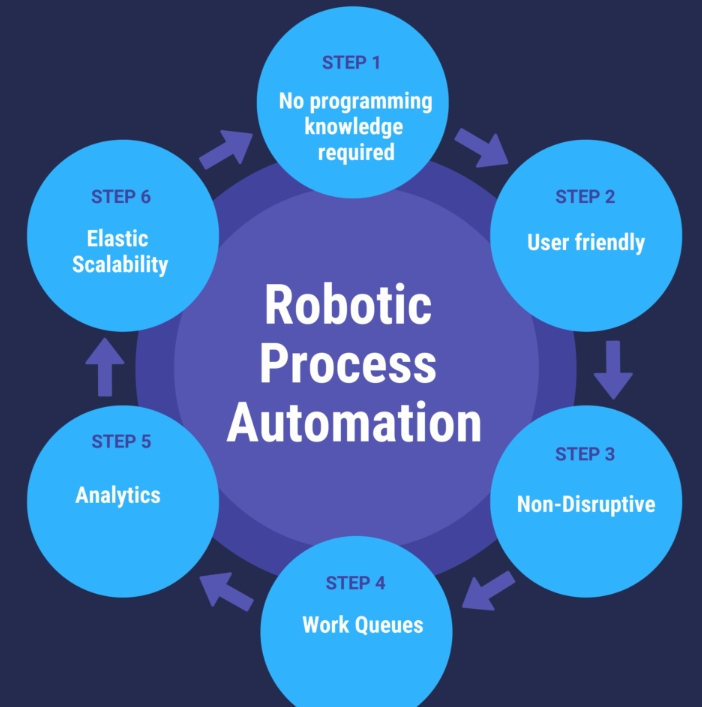
It is evident that the software aids in business process management through process discovery and automated workflows.
Alongside this, RPA also uses natural language processing for enhanced interaction and understanding.
Marketing automation software
Surprisingly, marketing mechanization software can be your ticket to success! Commonly it utilizes intelligent automation, RPA and ML to optimize marketing tasks. The beneficial thing about this is it leverages artificial intelligence to assist businesses to manage their marketing processes efficiently.
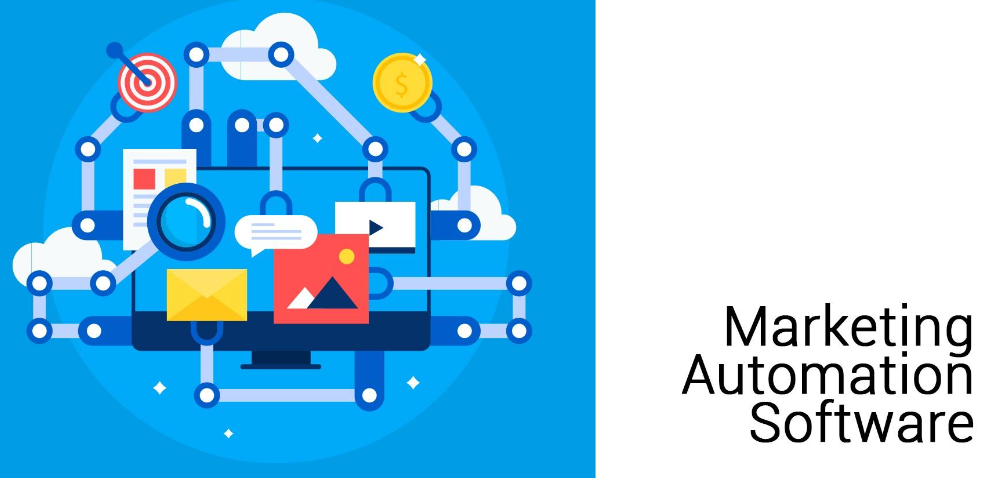
It's significant to note that key aspects of this tool include process mechanization and BPM which leads to enhanced productivity. What’s fascinating is that features such as: NLP (Natural Language Processing) and process discovery further enrich the mechanization experience.
Examples of automation software
The notable thing about Zapier is it is a well-known automation software that adopts intelligent mechanization and workflow automation. What’s more, it facilitates the integration of different applications to automate tasks that are repetitive.
Another popular software is UiPath. It's an undeniable truth that It leverages ML and NLP to simulate human actions and interact with data systems.
Bonsai for workflow automation software
Bonsai's workflow automation software is a powerful ally for businesses, especially agencies, looking to streamline their operations. It offers automated actions triggered by key events, like sending a message when a contract is signed or scheduling a meeting after a form is filled out.
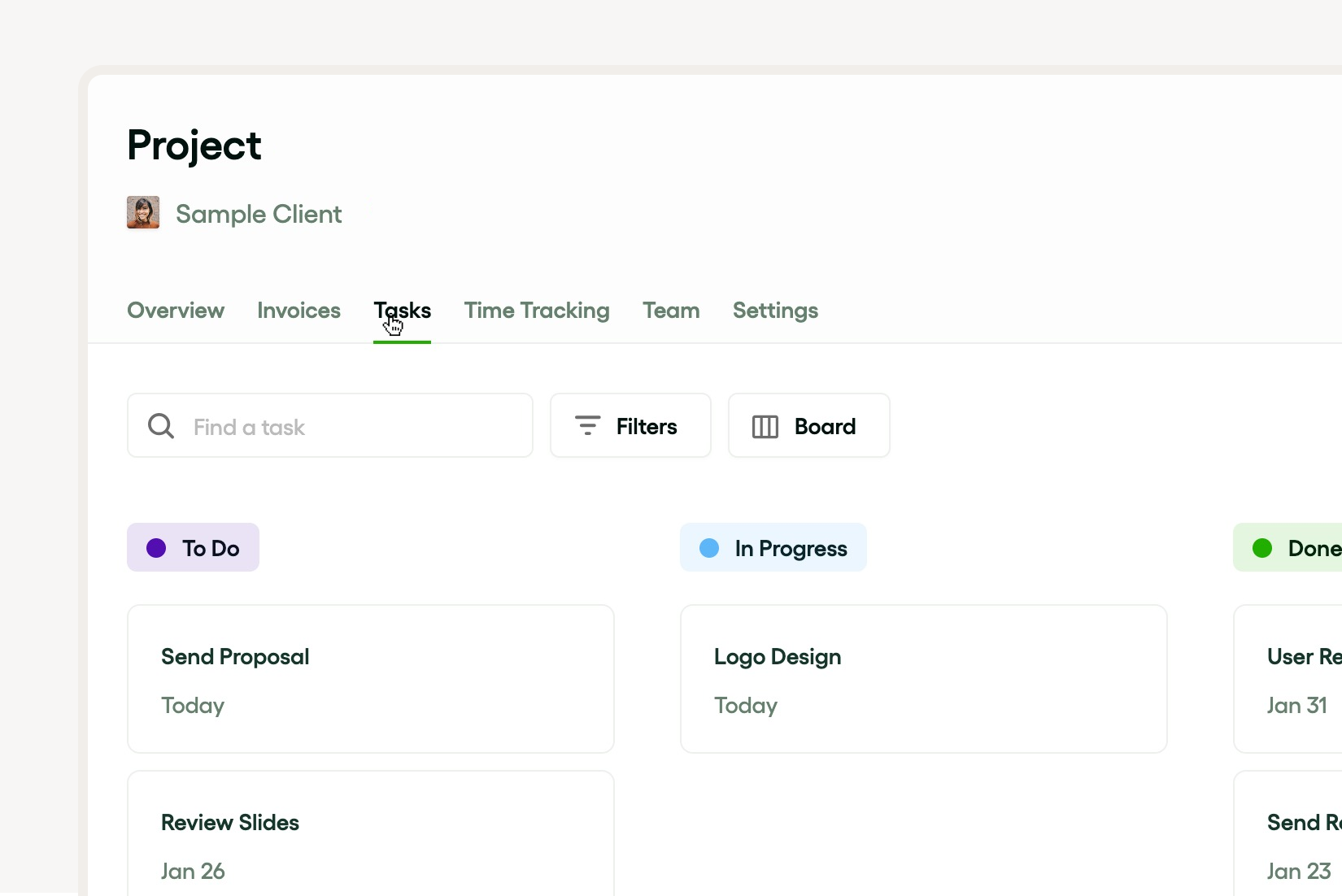
With workflow automations, Bonsai reduces manual steps, saving hours each week and ensuring a consistent client experience. The platform's process designer tool allows for the creation of dynamic workflows with customizable templates and actions, making it easier to manage tasks such as document approvals and sales order processing. Bonsai's workflow automation is simple to set up and significantly boosts productivity.
HubSpot for marketing automation
Usually, HubSpot is a leading software platform that offers powerful Marketing Automation capabilities. What’s remarkable is that it leverages intelligent mechanization and machine learning to manage and streamline marketing tasks; ranging from email marketing to social media management! There is no doubt that this platform uses AI to customize and personalize marketing efforts that result in more meaningful customer interactions as well as improved ROI.
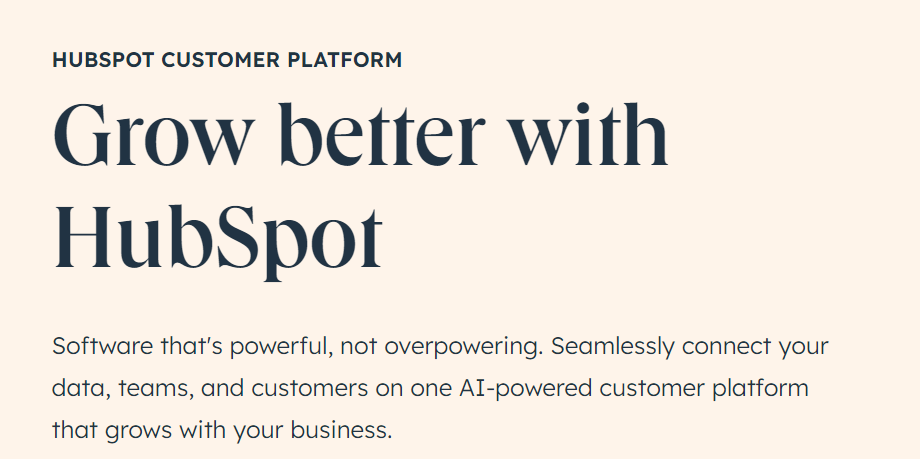
What’s remarkable is with HubSpot; companies can experience efficiency, agility, and growth like never before!
However, it is not all sunshine and rainbows while using Hubspot. It is disheartening to acknowledge the disadvantages of HubSpot for Marketing Automation. Despite its popularity, HubSpot's cost can be prohibitively high for small businesses and startups that makes it an inaccessible tool for those with limited budgets. Sadly, the platform's complexity can be overwhelming too.
Additionally, users often experience limitations in customization, which can stifle creativity. The sad reality is that HubSpot's reliance on third-party integrations can cause workflow disruptions and technical issues. It’s a worrying thing that this can further complicate the marketing mechanization process.
UiPath for robotic process automation
Remarkably, revolving around the facets of intelligent automation, UiPath offers numerous solutions for expanding business productivity. Mainly focusing on robotic process automation, it leverages AI together with ML tactics to enhance accuracy in the operations of businesses. Fortunately these capabilities result in effective BPM.
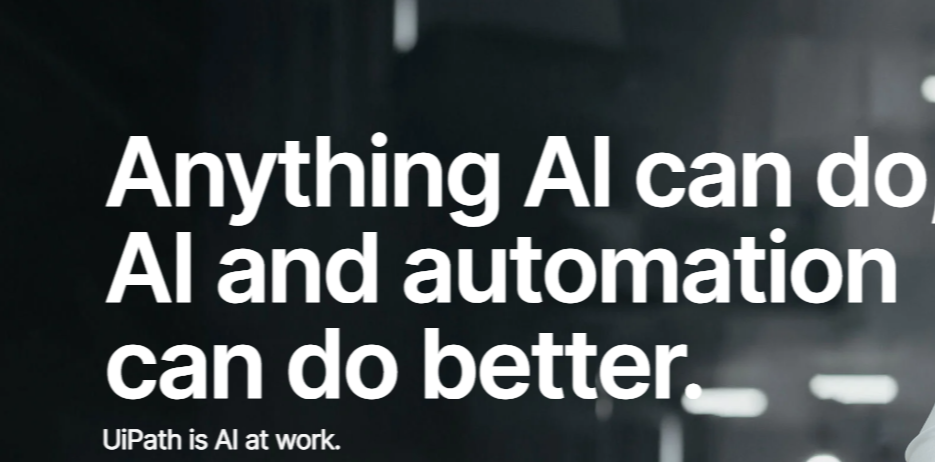
What’s worth noticing is UiPath aims to facilitate workflow automation by amalgamating natural language processing and process discovery, resulting in a more streamlined business environment.
.
The cool thing is emphasizing on data mechanization as well, UiPath significantly reduces manual interventions, driving business process automation.
Microsoft Power automate for IT process automation
Interestingly, Microsoft Power Automate is a service that helps with intelligent mechanization of business processes. It is widely recognized that Power Automate is an integral component in business process management as it harnesses the mechanization of data to enable advanced decision-making capabilities.
It is important to highlight that this tool allows for seamless workflow automation through the creation of automated workflows that standardize process automation.
Unfortunately, Microsoft Power Automate for IT Process Mechanization comes with its own set of drawbacks. One major concern is its compatibility issues with non-Microsoft applications, which can severely limit its functionality for businesses relying on diverse software ecosystems.
It’s a sad thing that the platform's interface is often criticized for being unintuitive and clunky, and, inevitably, this makes it difficult for users to navigate and utilize its full potential. It's also disappointing to note that the pricing model can become quite expensive.
Kissflow for business process automation
Notably, Kissflow is a cutting-edge solution for business process automation. The cool thing is this software combines smart features of RPA and machine learning so that it can make certain efficient automation processes. It is an amazing thing that this enables businesses to reduce manual input.
It is beyond question that automated workflows are another significant aspect facilitated by Kissflow, which results in improved data mechanization and overall productivity.
Benefits of using automation software
There is no denying that this software provides a plethora of benefits, including enhanced productivity, reduced errors, and significant cost savings. One thing is clear as daylight: It is pivotal in the execution of various activities and tasks such as:-
- Management of business processes
- Mechanization of data
It’s just astonishing how relevant technologies like intelligent automation, RPA, etc. can revolutionize the way organizations operate!
Specifically, process mechanization along with NLP enables machines to complete mundane duties with unprecedented accuracy and speed.
Increased efficiency and productivity
Intelligent automation, which uses ML and AI, has significantly increased efficiency and productivity in many sectors. One thing is clear: In BPM, RPA(Robotic Process Automation) has freed up employees to focus on more important and strategic roles.
What’s worth noticing is this new wave of mechanization has also brought about the advent of automated workflows and process discovery. To add on, the impressive results of using tools like task mining only underscore the enormous potential of mechanization of data in driving business success.
Reduced errors and improved accuracy
It is significant to highlight that the introduction of intelligent automation, incorporating AI along with ML– can significantly reduce errors by eliminating the risk of human inaccuracies. Certainly, this kind of automation, using techniques like RPA and workflow mechanization, enhances the precision and efficiency of BPM (Business Process Management).
Simultaneously, BPM also allows for ongoing monitoring and optimization of workflows to ensure accuracy remains high.
So, it’s proven that adopting these cutting-edge technologies could greatly benefit your business in terms of error reduction and improved accuracy.
Cost savings
It is safe to say that task mining and process automation are transforming BPM.
What's worth highlighting is these technologies are designed to automate repetitive tasks that allow organizations to achieve significant cost savings.
The cool thing is through the application of RPA and AI– businesses can optimize their workflows, yielding a more cost-effective operation. Key benefits include:
- Reduction in operational costs
- Enhanced productivity
Impact of automation software on work
It's indisputable that this software is significantly altering contemporary work environments. Clearly, it enhances business process management through the use of:-
- Mechanization of data
- Process automation
Evidently, mechanization not only boosts efficiency and accuracy but also frees up human resources for tasks requiring creativity and critical thinking.
Changing roles and responsibilities
What’s notable is that the era of BPA is witnessing dynamic shifts in roles and responsibilities.
Usually, intelligent mechanization and RPA come into the frontline, lightening the load on human resources. It's well known that they automate repetitive tasks and streamline complex processes.
What’s fascinating is with ML and the use of AI, automated workflows are getting smarter. Astonishingly, as they 'learn', they improve their own performance! Inarguably, this reduces the need for human intervention. These advancements not only impact everyday tasks but also change the decision-making processes for business process management.
One thing to be noted: Mechanization is not eliminating roles but reshaping them and enhancing productivity.
Enhanced decision-making capabilities
Thanks to intelligent automation and RPA, businesses now possess enhanced decision-making capabilities. It's a well-documented fact that these technologies encompass ML(Machine Learning) as well as AI(Artificial Intelligence) which enable automated workflows. Amazingly, this allows for a more efficient use of resources.
By leveraging natural language processing, process mechanization becomes vastly improved. What's worth mentioning is this allows businesses to better analyze data through process mining and business process automation.
Choosing the right automation software for your agency
Understanding the power of automation software is integral to optimizing any business's workflow. For example, implementing technology in a strategy such as how to build a sales funnel can significantly boost efficiency and productivity. The potential to automate tasks within the funnel can free up valuable time and resources, for strategic tasks that require human intervention.
Automation software plays a crucial role in streamlining business operations. Specifically, it can significantly improve how businesses manage their customer interactions through platforms mentioned in our social media CRM article. Understanding this tool can lead to enhanced efficiency and boosted customer engagement.
When considering the various tools that can optimize your automation software, it's important to understand their specific use cases and functionalities. It's therefore essential that they are applied appropriately to maximize efficiency. A robust automation software system can significantly streamline your processes, thereby improving productivity and reducing errors.
Automation software can greatly improve your efficiency, leaving you more time to focus on other aspects of your work. One area where this can be especially beneficial is with tracking and billing your hours. This, in turn, can lead to greater accuracy and increased revenue.
Generally you should start by evaluating BPA tools that feature intelligent automation, RPA (Robotic Process Automation), and automated workflows. It is a remarkable thing that these features streamline and accelerate routine tasks, leaving your team free to focus on growing your business.
Remember, modern BPA tools with process mining, task mining and mechanization of data can unlock a wealth of insights from your data, driving smarter decision-making.
Don’t forget to consider whether the software you're evaluating includes functionalities like natural language processing and machine learning.
Key considerations when selecting automation software
It’s a worrying thing that choosing the right mechanization software can be a complex process, but key considerations should revolve around its ability to incorporate:-
- Intelligent automation
- Data automation
- BPA

Definitely, the software should seamlessly integrate with your existing systems and assist in enhancing workflow automation.
It’s no secret that it is beneficial if the software includes capabilities for task mining together with NLP to enhance the mechanization of workflows.
Last but not least, a good automation software should offer tools for business process management so that it can allow you to track, analyze, and improve key processes over time. It is fair to say that it is crucial to ensure mechanization processes align with your organization’s objectives and vision.
Conclusion: The future of work with automation software
One thing is proven: The future of work will be greatly shaped by intelligent automation, including robotic process automation and machine learning.
As artificial intelligence becomes more sophisticated, we expect to see advancements in the automation of workflow and BPM.
Inevitably, these changes will enable more efficient process discovery and task mining, resulting in refined automated workflows.
It’s an undeniable truth that the mechanization of processes will revolutionize the business sector, with natural language processing improving customer service operations.
It’s just astonishing how automation processes leveraging machine learning will result in in-depth process mining and data automation, heralding a new era in business process automation!








